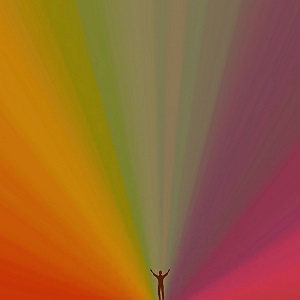In the fall of 2012, many mainstream music critics were hailing the new indie rock explosion, and at the forefront of that wave we had acts like Mumford & Sons and The Lumineers and Phillip Phillips. Now, granted, I was never a huge fan of any of these acts, but I understand what they do and they occasionally managed to impress me. Yes, even Mumford & Sons (I stand by my criticism of the act that they really don't contribute anything to music as a whole, but they certainly don't embarrass themselves that badly unless you dig deeply into their lyrics).
But what I took a little umbrage to at the time was the genre classification of the majority of these acts, and how people were calling them 'folk rock'. It wasn't that I disagreed, per se - indeed, if I were pressed to come up with a genre classification of these acts other than indie, I'd probably call them contemporary folk rock and run with that. But what annoyed me a bit was the level of mainstream acclaim these acts received. Once again, I wouldn't call any of these acts bad, but at least to me, they sure as hell didn't represent the folk rock with which I was most familiar.
And with that, let's talk about Blackmore's Night.
As I mentioned before, when I was younger, I skipped straight from pop music and Eminem to power and symphonic metal, and in the process of using that old, unreliable bit of vapourware Limewire, I came across several songs that were mistakenly noted as Nightwish songs. As most of you probably remember, getting accurate song titles and band names in the days of Limewire (to say nothing of album names) was a nightmare, and pre-Wikipedia (this was around 2005), it required a fair amount of legwork to figure out what these songs actually were. Eventually, I managed to discover that these songs came from a medieval folk rock act known as Blackmore's Night, founded by former Deep Purple virtuoso guitarist Ritchie Blackmore and his wife Candice Night.
And as a teenage fantasy nerd, I immediately fell head over heels for Blackmore's Night. Almost all of the elements clicked - Ritchie Blackmore's impressive guitar work, Candice Night's ethereal voice, the backing instrumentation was properly modulated to build to impressive crescendos, and the lyrics were steeped in fantasy and Wiccan culture. They immediately set in my impressionable mind the definition of what I thought folk rock was, and that definition persisted until my uncle introduced me to Bob Dylan.
So coming back to Blackmore's Night as a more mature music critic, does the band hold up to my expectations? Well, for the most part, yes. As with Deep Purple, the instrumentation is easily the biggest strength of Blackmore's Night, and Ritchie Blackmore's guitar work has remained as solid as ever. And I must admit a certain fondness for Candice Night willowy, ethereal delivery that perfectly matches the quasi-mystical feel the band is attempting to cultivate. Unfortunately, while the band does have an impressive repertoire of material in myth and legend to draw upon, they do occasionally repeat cliches between songs a little more than they should. And while they are more innovative and interesting songwriters than Deep Purple, I would hesitate to put them on any sort of pedestal here. It also doesn't help that they've done some pretty hit-and-miss covers over the course of their careers (the most egregious example being of 'Times They Are A Changin', which is just awful and embarrassing).
But if anything, I think the biggest 'barrier to entry' with regards to Blackmore's Night is the fact that they're a bit difficult to take seriously, specifically due to their genre. As much as I have issues with Game of Thrones, I will admit that the one net positive the HBO series is doing is increasing the mainstream public's tolerance for fantasy in their pop culture (a process begun in most cases by The Lord of the Rings films). But even with that, it can be tough to buy into an act that sings about magic and fae and fantasy with wholehearted sincerity, and Blackmore's Night doesn't have an ounce of cynicism or winking in their subject matter. They believe what they're selling, and thus it's absolutely no surprise that they only tend to play live at Renaissance fairs and smaller, medieval-themed venues - which also puts a definite ceiling on any mainstream success they're aiming to have. But then again, I'm not sure Ritchie Blackmore is actively looking for mainstream success in the same way he was with Deep Purple - to him, Blackmore's Night is a passion project, and he's not going to turn it into work.
So with all of that in mind, how is their discography? Well, I'd describe all of their previous albums as good, but I'd have a hard time calling them great, mostly due to inconsistency. Typically per album you'll get three or four great songs and a whole lot of passable material, but not much more. Their most recent album Autumn Sky (released in 2010) was probably on the lower end of that spectrum - not as shaky as their debut album Shadows of the Moon, but not as strong as Village Lanterne (yeah, they spell 'lanterne' with an extra 'e' - they're that kind of band).
So, in the past week, they released a new album, Dancer And The Moon - how does it fair?

.jpg)